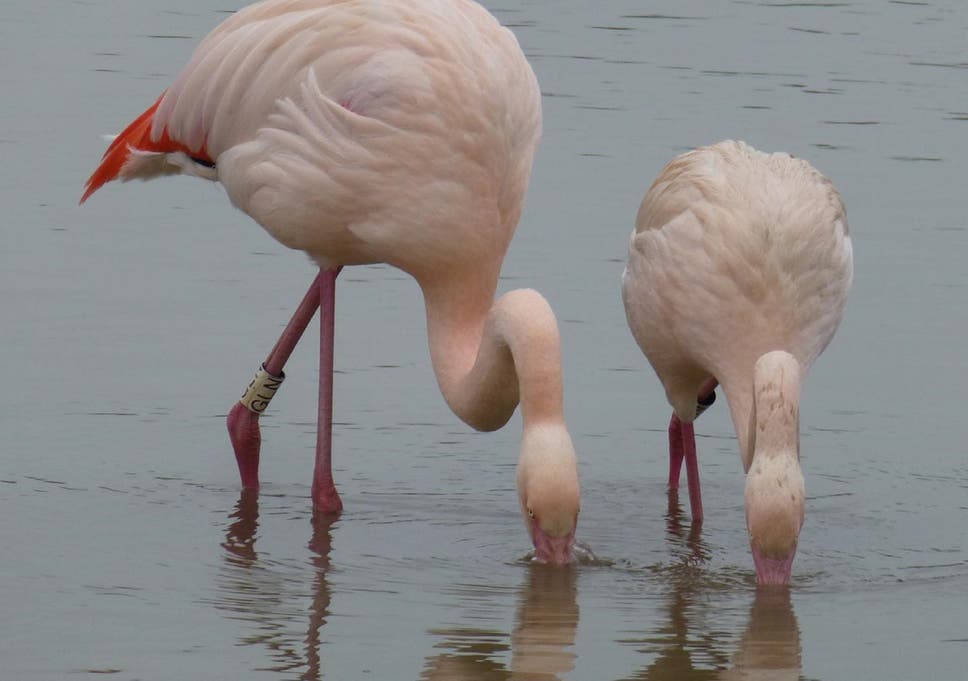
Flamingos form friendships that last for years and “choose to hang out” with each other, scientists have learned.
A five-year study found the distinctive pink birds, known to be highly sociable as part of a large flock, often prefer to spend time with specific close “friends” within their group.
And they even appear to avoid certain individuals they don’t get on with, according to researchers at the University of Exeter.
The team behind the study found social bonds including “married” couples, same-sex friendships and even groups of three and four close friends while examining four flamingo species.
Dr Paul Rose, author of the study, published in the journal Behavioural Processes, said the findings showed “flamingo societies are complex.”
He added: “They are formed of long-standing friendships rather than loose, random connections.
“Flamingos don’t simply find a mate and spend their time with that individual.
“Some mating couples spend much of their time together, but lots of other social bonds also exist.
“We see pairs of males or females choosing to ‘hang out’, we see trios and quartets that are regularly together.
“It seems that – like humans – flamingos form social bonds for a variety of reasons, and the fact they’re so long-lasting suggests they are important for survival in the wild.”
Researchers examined flocks of Caribbean, Chilean, Andean and Lesser flamingos at the Wildfowl and Wetlands Trust’s Slimbridge Wetland Centre between 2012 and 2016.
Some of birds studied had been at the centre in Gloucestershire since the 1960s.
Their flocks varied in size from just over 20 to more than 140, with researchers finding larger flocks contained the highest level of social interactions.
The study found seasons affected social interactions, with more bonds forming in spring and summer when the birds breed.
Dr Rose said the “simple lesson” of the study “is that captive flamingo flocks should contain as many birds as reasonably possible”.
The zoologist said the findings could also help in the management of captive flamingos and stressed care should be taken not to separate flamingos closely bonded to each other when moving them from one zoo to another.







